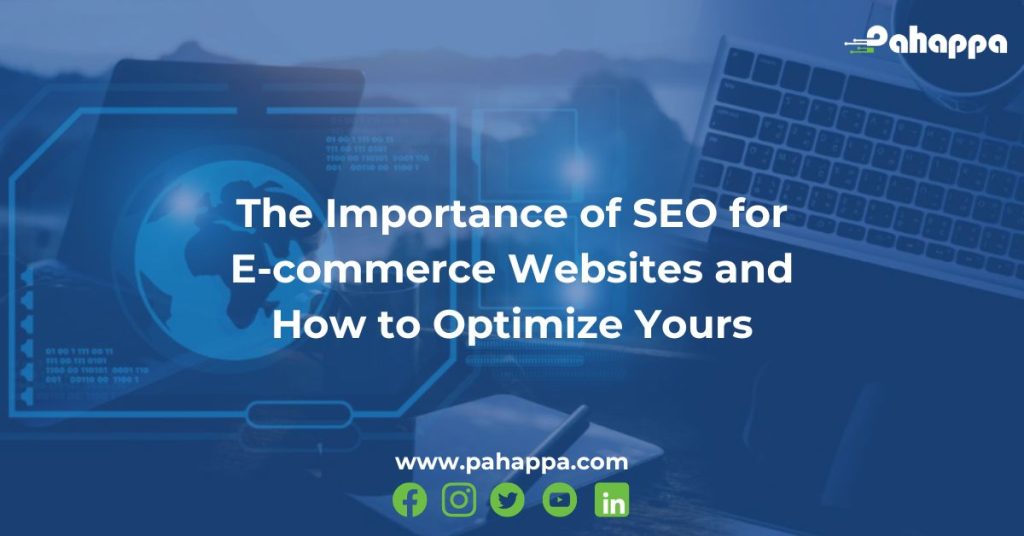Today, where competition is fierce and online visibility is paramount, the significance of Search Engine Optimization (SEO) cannot be overstated, especially for e-commerce websites. With millions of products seeking attention, ensuring that your online store stands out from the crowd is crucial for driving traffic, increasing conversions, and ultimately, boosting revenue. And making sure that your website is optimized to appear relevant in every search engine keeps your store at an advantage.
Understanding the Power of SEO
SEO is the backbone of any successful e-commerce strategy. It involves optimizing your website and content to rank higher in search engine results pages (SERPs). This is so that relevant keywords and phrases that potential customers use can find products like yours. By improving your website’s visibility and organic search traffic, SEO helps you reach a larger audience and attract qualified leads actively seeking what you offer.
Why SEO Matters for E-commerce
-
Increased Visibility:
Ranking higher in search results means more exposure for your products and brand. Studies show that the majority of clicks go to the top results on the first page of Google, making it essential to appear prominently for relevant search queries.
-
Enhanced Credibility:
Websites that appear at the top of search results are often perceived as more trustworthy and authoritative by users. By optimizing your site for SEO, you can build credibility and establish your brand as a leader in your industry.
-
Targeted Traffic:
Unlike traditional advertising methods, SEO targets users who are actively looking for products or information related to your business. This means that the traffic you receive from organic search is highly relevant and more likely to convert into sales. So as ;omg as you use the right keywords, you can get the right customers.
-
Cost-Effectiveness:
While paid advertising can drive immediate results, it requires ongoing investment and may not be sustainable in the long term. SEO, on the other hand, offers a cost-effective way to attract organic traffic to your site, providing long-term benefits and a higher return on investment (ROI) over time. For the most part this is better because you want to make sure that the traffic pulled to your website is organic.
How to Optimize Your E-commerce Website
-
Keyword Research:
Start by identifying relevant keywords and phrases that your target audience is likely to search for. Use tools like Google Keyword Planner or SEMrush to discover high-volume keywords with moderate to low competition.
-
On-Page Optimization:
Optimize your product pages, category pages, and blog posts with targeted keywords in strategic locations such as titles, headings, meta descriptions, and product descriptions. Ensure that your content is well-written, informative, and tailored to the needs of your audience.
-
Site Structure and Navigation:
Create a user-friendly site structure with clear navigation paths that make it easy for visitors to find what they’re looking for. Use descriptive URLs, organize products into categories and subcategories, and implement breadcrumb navigation to improve user experience and search engine crawlability. Also make sure yo can use a friendly design with high quality images.
-
Mobile Optimization:
With an increasing number of users accessing the internet on mobile devices, it’s essential to ensure that your e-commerce website is mobile-friendly. Optimize your site for mobile devices by using responsive design, optimizing page speed, and providing a seamless shopping experience across all devices.
-
Quality Content and Link Building:
Invest in creating high-quality content that provides value to your audience and encourages engagement and sharing. This can include product reviews, buying guides, blog posts, and informative articles related to your industry. Additionally, focus on building backlinks from reputable websites in your niche to improve your site’s authority and credibility in the eyes of search engines.
-
Monitor and Analyze Performance:
Regularly monitor your website’s performance using tools like Google Analytics and Google Search Console. Track key metrics such as organic traffic, keyword rankings, conversion rates, and bounce rates to identify areas for improvement and adjust your SEO strategy accordingly.
In conclusion, with the increasing number of online shopping, SEO is one of the best ways to drive traffic to your website. In order to be successful with this it is important to know your goal. What are you trying to achieve with an SEO plan? What kind of clients are you trying to attract? Analyze the keywords your ideal customer is most likely to use. And with this you will be on your way to getting the most out of your SEO plan. If you would like to know more about how we optimize our websites, click here to watch the video.












Hi my loved one I wish to say that this post is amazing nice written and include approximately all vital infos Id like to peer more posts like this